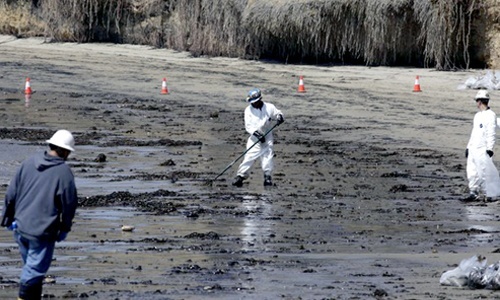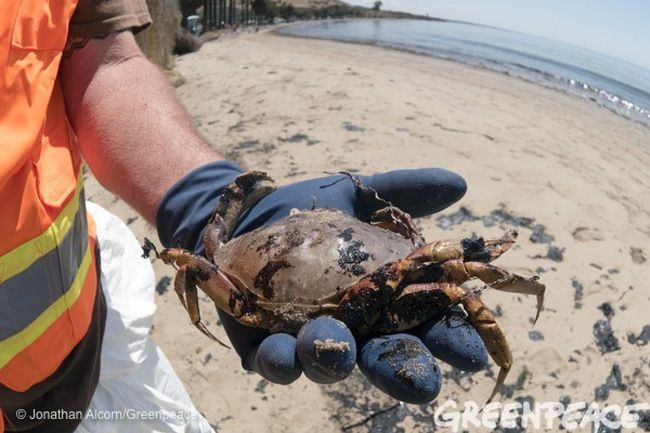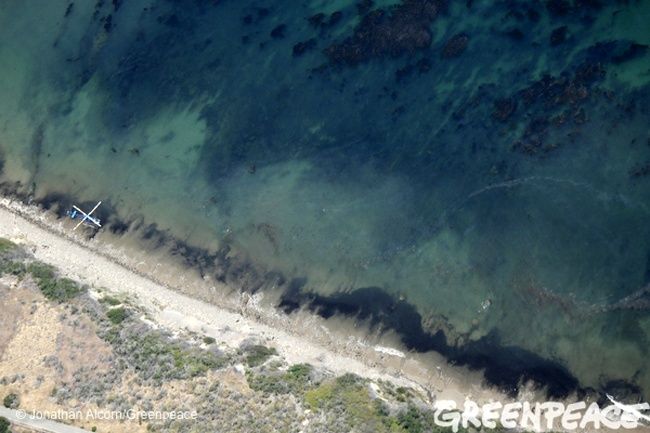
State of Emergency Declared: California Oil Spill Now Estimated at 105,000 Gallons

Tuesday afternoon, news spread of the latest oil-related tragedy to occur in the U.S.—an oil pipeline ruptured in Santa Barbara County in Central California, along the Refugio State Beach coastline. Though the pipeline was on land, it was found to be leaking into a culvert that eventually emptied into the ocean. By the time the pipeline was shut off, oil had been spilling into the sea for at least three hours.
As of Tuesday evening, officials claimed that an estimated 21,000 gallons had spilled into the ocean in an oil slick that was four miles wide. Unfortunately, as of yesterday morning, the slick had spread to at least nine miles wide, as the winds and tides did what they do. And now, a new estimate says that up to 105,000 gallons of oil might have been spilled. Yesterday, California Gov. Jerry Brown declared a state of emergency due to the effects of the oil spill on Santa Barbara County.

Refugio State Beach has been closed indefinitely. The area is a sensitive and important place for all kinds of species, including migratory whales and rare seabirds—and wildlife has already been affected. Though there is no estimate of how much wildlife has been impacted so far, things don’t look good.


The cleanup is painstaking work. There are several dozen workers outfitted in protective suits and helmets on the beach, shoveling up contaminated mud and rocks into plastic bags. It is made more arduous by having to take place both on shore and on the water, since the oil originated on land.

 233k
233k  41k
41k  Subscribe
Subscribe 
